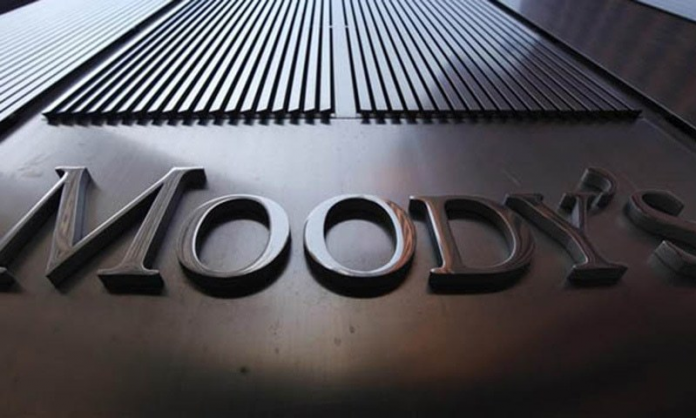KARACHI: Moody’s Investors Service on Thursday said in a new report that the recent measures taken by the State Bank of Pakistan (SBP) will help Pakistani banks.
The global rating agency’s research arm said, “We expect the measures to mitigate banks’ asset-quality deterioration amid less business generation and loan growth in an economic slowdown.”
The measures in question were referring to the SBP cutting the policy rate by 150 basis points from 12.5pc to 11pc on March 23.
Then on March 26, the SBP announced in its relief package for borrowers, that it was to relax the regulatory criteria for restructuring of loans until March 31, 2021. Loans that are rescheduled within 180 days from the due date of payment will not be treated as defaults.
The SBP also reduced the capital conservation buffer (CCB) from 2.5 percent to 1.5pc, allowing banks to lend an additional amount of around Rs800 billion
Moody’s rates five Pakistani banks: Habib Bank Limited, National Bank of Pakistan, United Bank Ltd, MCB Bank Limited.
“These banks benefit from high or very high levels of government support, which will shield their credit profiles from impairment of their standalone credit assessments,” said Constantinos Kypreos, senior vice president at Moody’s Investor Service.
The policy rate reduction will help maintain credit growth, which will remain below normal GDP growth, according to the report.
“Lower interest rates on loans will also improve borrowers’ repayment capacity, however, the lower rates will reduce net interest margins and diminish banks’ earnings,” the report warned.
As for the lower CCB, it will support banks’ lending activities, but might create a potential asset-quality pressure.
The SBP’s loan refinancing, and allowance for delayed principal payments, “lowers the risk of asset impairment and supports the value of securitised assets over the longer term”.
Additionally, the report noted that the SBP has postponed for two months until 30 August 2020 the preparation of pro forma accounts based on the International Financial Reporting Standard No. 9, which requires full implementation by 1 January 2021.
“The delay supports capital ratios that would be adversely affected by higher provisions if IFRS9 were to have taken effect earlier,” the authors of the report noted.
OTHER OBSERVATIONS
In light of the coronavirus pandemic, the authors of the report also said they expected Pakistan’s real GDP growth to slow to 2.0-2.5pc for fiscal 2020, which ends 30 June 2020. This is lower than the earlier forecast of 2.9percent.
Consumption of services, which has underpinned growth in recent years, will be adversely affected by the movement restrictions.
The authors of the report were also concerned about Pakistan’s textile sector, which accounts for around 60 percent of exports, saying it has been hit by supply-chain disruptions and a decline of orders. Manufacturing loans, mainly to the textile and food sector, accounted for 62pc of private-sector loans as of 29 February 2020.

























lond chya bhota zarorat karobar kya liya